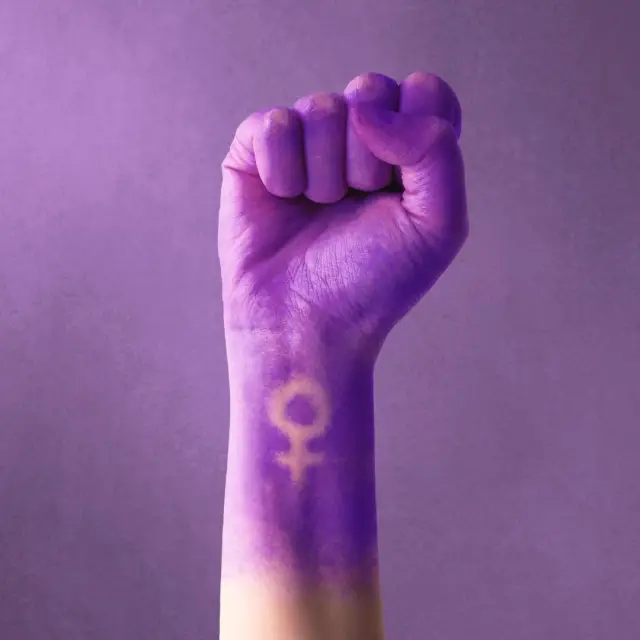International Women's Day, celebrated every March 8, is a significant date that honors the social, economic, cultural and political achievements of women around the world. In addition to being an occasion for celebration, it also serves as a call to action to accelerate gender equality and address the challenges still faced by women in various parts of the world.
The Origin of International Women's Day
The history of International Women's Day dates back to the late 19th and early 20th centuries, a time marked by industrialization, labor movements, and struggles for women's suffrage. In 1908, around 15,000 women marched through the streets of New York demanding better working conditions, the right to vote, and a shorter work day. This event marked a milestone in the fight for women's rights.
In 1910, during the Second International Conference of Socialist Women held in Copenhagen, Clara Zetkin proposed the idea of an international day to honour women and promote equal rights. The proposal was adopted unanimously, and the first International Women's Day was celebrated on 19 March 1911 in Germany, Austria, Denmark and Switzerland.
In 1977, the United Nations General Assembly officially proclaimed March 8 as International Women's Day, consolidating its importance as a global day of reflection and action.
The Meaning of International Women's Day
International Women's Day is much more than a commemorative date; it is a reminder of the essential contributions of women to society and an opportunity to highlight the gender inequalities that persist.
Celebration of Achievements
On this date, the fundamental role of women in all fields is recognised and celebrated: from politics and economics to science, education and the arts. Iconic examples include the leadership of women such as Malala Yousafzai in education, Angela Merkel in politics and Marie Curie in science.
Reflection and Activism
International Women's Day also invites us to reflect on the challenges that persist, such as the wage gap, gender violence, unequal access to opportunities and limited representation in positions of power. The marches and demonstrations held on this date are a reminder of the work that remains to be done.
Key Achievements in the Fight for Gender Equality
Over the decades, the women's rights movement has made significant progress, including:
Voting Rights: Women's suffrage was one of the first major achievements. In 1893, New Zealand became the first country to grant women the right to vote.
Education: In many countries, access to education for girls has improved considerably, although barriers remain in disadvantaged regions.
Legal Equality: Laws against gender discrimination have been enacted in many countries, as well as regulations to combat gender violence.
Political Participation: The number of women in political office has increased, although gender parity in this area is far from being achieved.
Contemporary Challenges
Despite the progress made, women still face numerous challenges around the world. Some of the most pressing issues include:
Wage Gap
Women still earn less than men for the same work. According to recent reports, the global pay gap is around 20%, and in some sectors it is even more pronounced.
Gender Violence
Violence against women remains a global crisis. UN statistics indicate that one in three women has experienced physical or sexual violence in her lifetime.
Underrepresentation in Leadership
Although the number of women in leadership positions has increased, there is still significant underrepresentation in fields such as politics, technology and large companies.
Unequal Access to Resources
In many regions, women have less access to essential resources such as education, healthcare and financial credit, limiting their development opportunities.
The Role of Men in Gender Equality
The fight for gender equality is not exclusive to women. Men also play a crucial role as allies in this process. From challenging gender stereotypes to supporting inclusive policies, their participation is essential to achieving lasting change.
Global Initiatives and Campaigns
Numerous organizations and initiatives are working to promote gender equality. Some of the most notable campaigns include:
HeForShe: A solidarity campaign by UN Women that invites men and boys to join as advocates for gender equality.
Orange Days: An initiative to prevent and eliminate violence against women, promoted by the UN.
Girls Not Brides: A global partnership dedicated to ending child marriage and empowering girls.
What Can We Do?
Each person can contribute to the fight for gender equality in various ways:
Education: Educate yourself and others about the challenges women face.
Activism: Participate in marches, events and campaigns that promote gender equality.
Policy Support: Demand that governments and companies implement inclusive and equitable policies.
Questioning Stereotypes: Challenging traditional gender roles in everyday life.
Solidarity: Listening to and supporting women in their fight for equality.
International Women's Day is an occasion to celebrate achievements, reflect on pending challenges and renew commitment to gender equality. Although significant progress has been made, the fight is far from over. It is everyone's responsibility to work together to build a more just and inclusive society, where women have the same opportunities and rights as men. Every action counts, and change begins with us.
